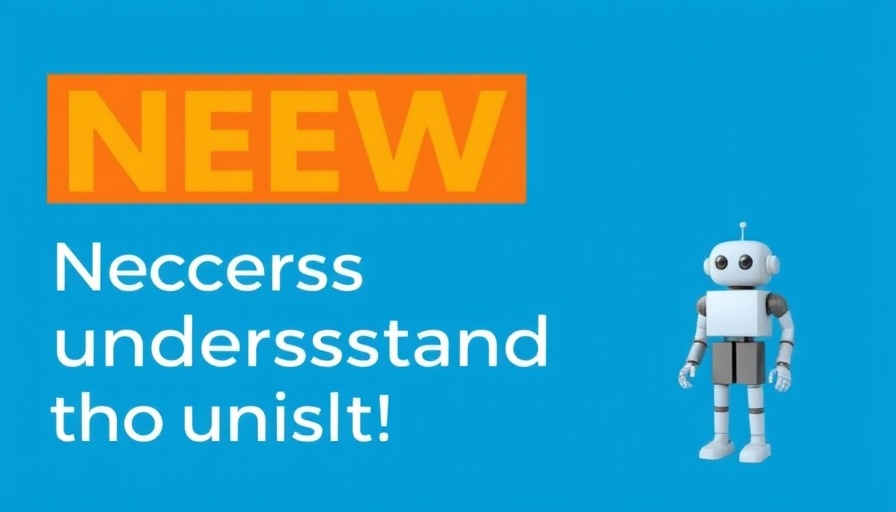
The Impact of AI on Entry-Level Employment
As artificial intelligence (AI) continues to revolutionize industries, its effects are felt most acutely among the youngest members of the workforce. A recent study from Stanford University reveals a troubling trend for entry-level workers, particularly those between 22 and 25 years old. Amid the rapid integration of generative AI tools, areas like software engineering and customer service job markets are reshaping in ways that young job seekers find increasingly daunting.
AI Job Cuts: A Disparity in Employment Trends
The research led by economist Erik Brynjolfsson utilized payroll data from millions to uncover a shocking 13% decline in entry-level positions in fields heavily influenced by automation since 2022. This decline starkly contrasts with the employment growth experienced by older workers in the same sectors, who have seen stabilization or increases in their job numbers.
As the employment landscape shifts, it becomes evident that AI job loss is not merely a consequence of automation but a profound restructuring that seems to favor experienced professionals over their younger counterparts. While fresh graduates enter a competitive arena, many older individuals have found their roles bolstered by automation that improves efficiency rather than eliminates jobs outright.
Examining Broader Economic Trends
The implications of the Stanford report align with other significant economic indicators. For instance, the Bank of America noted a worrying trend where the unemployment rate for recent college graduates has surpassed that of the general population—an alarming first in many years. Moreover, Goldman Sachs has highlighted a decline in the premium traditionally associated with obtaining a college degree.
Such data constructs a gloomy narrative; the very achievement that was once a gateway to career stability now seems uncertain under the shadow of advancing technology. The current generation must navigate a job market increasingly governed by AI's pervasive reach.
Current Challenges: The Ethical Dilemma of Automation
For young workers, the rise of AI and automation embodies an ethical dilemma, sparking discussions about how society values labor and education. With AI tools augmenting tasks typically performed by entry-level employees, the traditional pathway into the job market appears less accessible.
This situation raises vital questions: What responsibilities do companies have towards the very workers they automate? Moreover, how can we redefine career success in an age where roles are confined to machines and software?
What Lies Ahead: Future Predictions and Insights
As we look to the future, the challenge remains how to adapt to the ongoing evolution of the workplace. Workers aged 22-25 must develop skills to complement rather than compete with AI. This transition necessitates educational reforms and targeted upskilling initiatives, ensuring the workforce can thrive within an AI-fueled economy.
Future opportunities may exist for those who can harness technology to innovate in their fields, transforming potential job losses into ventures that benefit all labor sectors.
Employers: The Role of Community and Humanity
In facing these growing concerns regarding AI and entry-level employment, it's imperative that employers foster a community-oriented approach. By investing in training, mentorship, and clear career pathways for young workers, companies can support the next generation of leaders and innovators, integrating humanity with technology.
Conclusion: Taking Action for Tomorrow
While the trends gathered paint a challenging picture for young workers, there remains an opportunity for proactive engagement. Communities, policymakers, and businesses need to unite and form partnerships that prioritize workforce development in tandem with technological advancement. Embracing a future that recognizes the potential within each generation will be key to navigating the complex waters of AI job cuts and building a resilient economy.
By understanding these dynamics, readers can advocate for changes that could benefit young workers and inspire ongoing community conversations exploring the future of employment.
 Add Row
Add Row  Add
Add 




Write A Comment